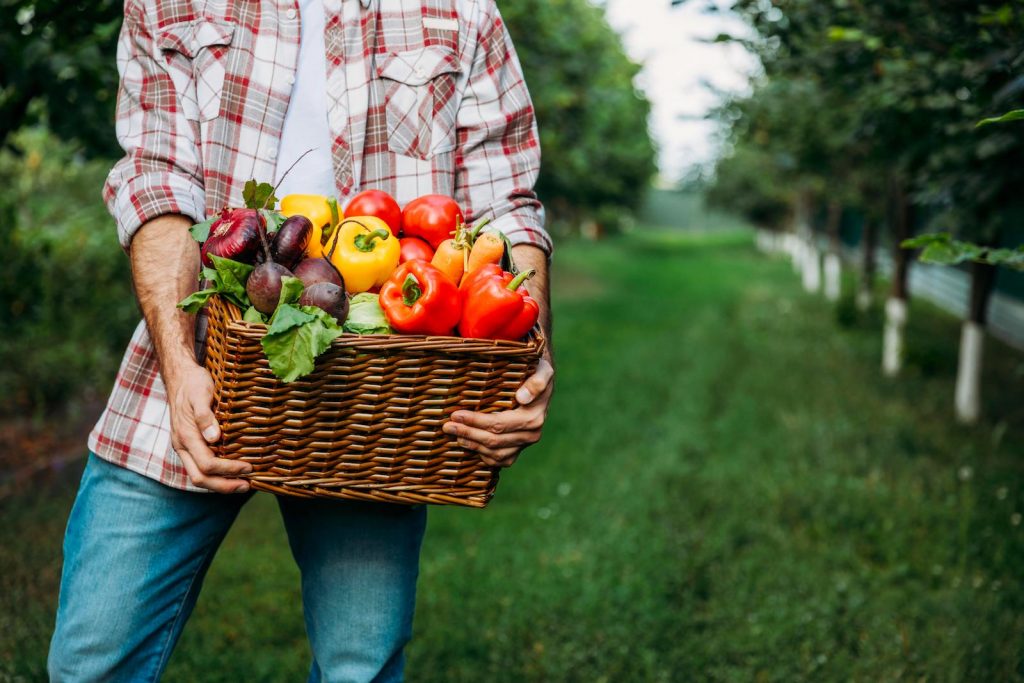Homesteading is regarded as the lifestyle of self-sufficiency. Going “off the grid” is a lucrative option for many, but you do have to prepare and learn how to use your land to the best of your ability. You’ll also want to make sure you gain a comprehensive understanding of laws where you are planning to homestead to make sure that you know your rights. Below are the best states for homesteading ranked from 50 to 1. This takes into consideration personal freedom laws, zoning laws, state acceptance of the lifestyle, and abundance of natural resources, among other factors.
50. New York
New York is regarded as the weakest in terms of freedoms. This takes both economic and personal freedoms into account. Land use freedom is low here due to strict NY rent control laws. Local zoning is somewhat moderate. New York’s local tax burden is also twice the national average.
49. California
California is criticized for its long standing low economic freedom. It has one of the highest tax rates in the entire country, and it is a fiscally centralized state. Local taxes are near the national average, but state taxes are much higher than the national average. Some cities here have rent control byt new housing is heavily regulated. Labor law is anti employment and it is one of the worst states for land use freedom.
48. Hawaii
Hawaii struggles with personal freedom laws, as well as poor fiscal policy that has led to government debt. Hawaii is particularly poor in land use and labor market freedom due to strict regulations on new residential buildings, although they do not have rent control.
47. New Jersey
New Jersey is also limited in terms of land use freedoms. Cities are free to enact rent control and strict zoning laws. Labor market freedoms are also limited due to compensation rules. NJ does not offer homestead protections. If you would like to have protection while homesteading in Jersey, you have to do this through the federal government.
46. Maryland
Maryland has poor regulatory policy and poor land use freedom laws due to extensive zoning restrictions. Maryland’s homestead laws limit the total value that can be set aside; it is around $3,000 for a single person.
45. Connecticut
CT doesn’t have a specific limit on acreage for homestead properties, but the maximum property value is $75,000.
44. Illinois
Illinois has very high local taxes as well as strict regulatory policy. They also have lifted restrictions on gun rights.
43. Rhode Island
Rhode Island has high debt and high local taxes. Land use freedom is not great due to zoning and eminent domain abuse. Labor policies here are also anti employment. However, they do have one of the best criminal justice systems in the country.
42. Maine
Homesteading is common in the northern area of Maine because it is sparsely populated and property taxes are low. Zoning and state laws are also easy to maneuver, and there are great natural resources like water and timber. The growing season, though, is shorter than other states.
41. Kentucky
Kentucky is a solid option because of the climate and soil that is conducive to raising livestock. Land is not the cheapest, but it is somewhat affordable. Farm real estate in particular is a little higher than the national average.
40. Vermont
Vermont has plenty of land and lots of available water. As long as you stay away from the bigger cities, zoning and resources are available to support your off the grid living.
39. West Virginia
West Virginia has some of the lowest property taxes in the whole country, however zoning laws are starting to change so this could be in limbo.
38. Minnesota
Small scale logging is a lucrative business here, although Minnesota is not a top choice to deal with the frigid winters that result in a very short growing season. Many will not be cut out for these tough winters.
37. Oregon
Oregon is plentiful with natural resources; hunting, fishing, and timber are available. The state is also welcoming to people who choose these lifestyles, and there are two major off grid communities in the state.
36. Mississippi
Mississippi is a good option since it has a very strong agricultural sector and has a long growing season. The land is also good for raising chickens. The cost of farm real estate is also a little below average. The downsides are overall tax burden as well as liberal spending on public welfare.
35. Ohio
Ohio is great because of low land prices and property taxes, as well as very low crime rates. There are even some areas where there are no zoning laws.
34. Louisiana
Louisiana has fertile soils and livestock raising opportunities, as well as growing opportunities for crayfish and catfish. Farmland is also affordable. Sugar cane is the leading farm product, and the long growing season and warm climate is conducive to this.
33. Massachusetts
Massachusetts does fairly well for homesteaders. However, it is very expensive to buy land here because the state has a large population. The state also has strict policies on projects such as wind turbines that you may want to consider. However, they have a large economy for farm fresh products if you are able to bypass the financial and legal burdens of setting up shop here.
32. Washington
Washington has pretty strict zoning and regulation laws, and eminent domain abuse is not checked. IT is also not a great state for labor market freedom. However, on a poticite note, the state has a lot of land and is less densely populated than some of the others on this list.
31. Delaware
Although Delaware is a small state, it is somewhat lucrative for homesteading. It is densely populated but is bordered by water on three sides which is helpful. Some crops grow well here,but the state has a lot of farming oversight regulations. It is also not a free range state so raising livestock can be more difficult.
30. New Mexico
New mexico has great opportunities for agriculture, and it is a great place to buy land since farmland is the cheateset in the entire country. HOwever, the only downside is the dry climate that can make irrigation expensive.
29. Arkansas
Arkansas has a huge farming business, and they have a lot of infrastructure to help farmers. However, since it is so competitive it can be tougher to get your foot in the door. It is also not a free range state.
28. Texas
Land in remote areas of Texas is very affordable, and there is a long growing season. However, you will have to choose your plot of land carefully, as some desert areas will leave you struggling to get enough water.
27. Wisconsin
Wisconsin is right next to the Great Lakes and has an agriculture economy; particularly in raising dairy cows to make cheese. They also make a lot of craft beer, so if you are interested in the brewing business, Wisconsin is a great choice. The state is also the top producer for cranberries, ginseng, and snap beans.
26. Pennsylvania
The state has a great network of farmers that can help you, but the state is a little bit more expensive than others. You will also have to register as a business if you are going to farm your own land. They also have strict rules for importing livestock.
25. Nebraska
Nebraska has good land use and environmental freedom. They also have a great civil liability system.
24. Michigan
Michigan is a right to farm state and is near the great lakes, so you will have plenty of diverse options for agriculture. There are also many farmers markets to support local economies and government support.
23. Alabama
Alabama’s biggest crops are potatoes, sweet potatoes, and watermelon. Cotton is still an important crop as well. Agricultural production is mainly broiler chickens. It was also one of the first states to open up public land for sale in the 1860’s.
22. Georgia
Agriculture is huge here, however the market can be difficult to break into due to the sheer number of established farmers already operating in the state. However, farmland is priced near the national average, and vegetables and peaches are great options.
21. Virginia
Virginia is a great state to consider if you are passionate about growing your own food. Conditions are great for growing healthy crops; there is a long growing season and temperatures are manageable. There is also enough rainfall.
20. Utah
Utah has some great natural resources that can accommodate homesteaders. You’ll want to be aware of the season and be able to adjust your needs as the yar progresses.
19. North Carolina
North Carolina is popular because of the growing Prepper Camp, which is a homesteading community that is fairly large in the state.
18. Missouri
Missouri is one of the easiest states to homestead in from a legal standpoint. It’s actually encouraged by the state! There are plenty of natural resources and the land is great for both ranching and farming.
17. Montana
Montant is great because the land is affordable and the state is not too densely populated. A downside is that the growing season is a little shorter, but there is enough grassland to raise livestock if you choose to do so. It’s also quite windy so you could use wind turbines as your source of power.
16. Kansas
Kansas has very high land use freedom laws as well as personal freedom protections. Some towns in Kansas do have free plots of land that are available for homesteading currently as well!
15. South Carolina
South Carolina is becoming more and more urban, however there are still rural areas to entice homesteaders. Top crops are tobacco, soybeans, cotton, and corn .SC is also the leading peach producer. Broiler chicks are also valuable, as are turkey and beef cattle.
14. Wyoming
Wyoming has 30 million acres ready for homesteading. Cattle are the top agricultural industry, but the wide open spaces are great for farming other things such as grains and honey. Winters can be deep but those who homestead there seem to love it.
13. North Dakota
North Dakota has a number of off the grid spots that are great for homesteading. For example, Fort berthold Reservation, Eagle River, and White Butte are great off the grid options.
12. Nevada
Nevada has deep roots in farming and ranching. It is also inexpensive and has low population density. If you can handle the range of harsh climates, successful homesteading is definitely possible here. The farm real estate is nearly a third of the national average.
11. Colorado
Land in colorado is inexpensive and conducive to raising livestock. Farm real estate is half of the national average and the most common crops are wheat, hay, and corn. If you can tackle the challenges of high altitude gardening and growing, Colorado is a great option.
10. Arizona
Arizona is a one of the best states for homesteading if you are on a budget because the land is quite cheap. This is because the land is often not suitable for growing crops, so you will want to keep that in mind as well. However, cheap land and comfortable homesteading laws make it a great choice.
9. Iowa
Iowa has some of the best soil in the entire country!90% of Iowa’s land is farmed, and the terrain is flat which makes crops grow well. It’s also a hotspot for production of renewable energy because the flat land makes it easier to create wind generated power.
8. Florida
Florida is one of the most diverse areas to grow crops and livestock in the country! There are however high land prices ,but there is a very strong community of farmers and homesteaders here to help newbies get started. Oranges are a huge crop, as are bell peppers, cucumberst, and sweet corn.
7. Idaho
Idaho is a great option if you are looking to have many crops, since the land is nutrient rich. The state also has comfortable gun laws and personal protection laws so you will be able to live off of your land and protect yourself quite easily.
6. Tennessee
Tennessee is one of the best states for homesteading because of a long growing season as well as low property taxes in rural regions. There is an abundance of opportunities for hunting and fishing if that is something that you’re interested in.
5. South Dakota
The 1862 Homestead Act made South Dakota the founding state for homesteading. The land is quite inexpensive, there is a tax-exempt bond program to help new farmers get on their feet. There is also a state fund for agricultural development studies. Wheat is the primary crop here.
4. Indiana
80% of Indiana is devoted to farms, and most of these are small and family owned operations. This creates a great landscape for families who are looking to break into homesteading. There are also a ton of different crops that do well here; dairy, ice cream, eggs, chickens, and popcorn are all top products.
3. Oklahoma
Homesteading is a fundamental part of Oklahoma’s history. Farm real estate is affordable,and there is not a strict license required to start your business.
2. Alaska
Alaska is a popular choice if you are able to withstand the harsh weather. You will be able to homestead here quite peacefully and easily if you prepare well.
1. New Hampshire
New Hampshire is a top choice because of a large supply of undeveloped acreage. They have a Farm Service Agency designed to help new farmers acquire the funds to purchase new farmland.




